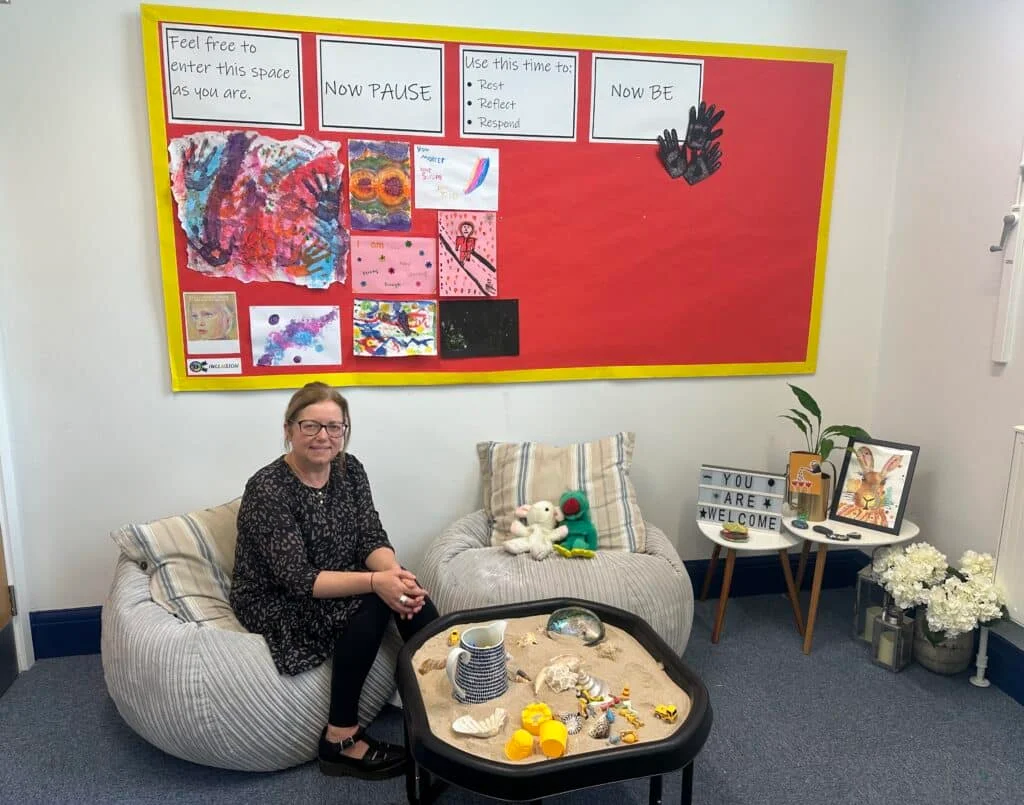How Meeting Young Offender Inspired Karen to Change Young Lives

By Jill Dando News
Coming face to face with the arsonist who set her car ablaze while she was pregnant became a turning point in Karen Lamb’s life, inspiring her to dedicate herself to helping vulnerable children escape the cycle of crime.
Twenty years ago, Karen’s car was completely destroyed in an arson attack, leaving her without transport at a crucial time – preparing for the arrival of her baby.
One of the young offenders responsible was placed on a reparation order, requiring him to meet with Karen and her husband in a restorative justice session.
There, they shared the profound impact the crime had on their lives.
That meeting was a revelation for Karen. Now serving as the mental health lead at The Bemrose School, she has seen firsthand the power of restorative justice in transforming lives.
“I had to take out a loan to buy a new car and it was a huge challenge to get to work and get everything ready with a baby on the way”, said Karen, who has also fostered 39 children over the last 18 years.
“But during the restorative meeting, I felt heard and validated. It was reassuring to see that the offender seemed remorseful, I could see it in his blushing cheeks.
“It gave me hope that he truly understood the consequences of his actions.”
Through this process, Karen also learned about the offender’s life, which gave her insight into why he had turned to crime.
Although it was difficult to hear, it strengthened her belief in the alternative approach to addressing crime that focuses on repairing relationships rather than solely punishing offenders.
Karen kept in touch with the offender for around 18 months, during which time he sent her a card when her baby was born and they continued to exchange messages about life.
This unexpected connection inspired Karen to become a voluntary restorative mentor, working one-on-one with another young offender each week, engaging in activities like bowling to build trust and guide him towards a better path.
Now, as an integral member of the pastoral team at The Bemrose School, Karen champions the school’s restorative approach to discipline and personal development, helping students make positive changes in their own lives.
Her role has since evolved into that of a dedicated mental health lead, a position that is usually combined with other responsibilities in most schools, but one that she now focuses on exclusively.
“I love working at The Bemrose School because they apply the restorative approach I firmly believe in to their pupils.
“The school values not just the education of its students but also their well-being, and that is reflected in its approach to justice. It’s about supporting the whole pupil, not just focusing on statistics.”
At Bemrose, restorative practices are used to address conflicts and issues with the goal of helping students understand the consequences of their actions and resolve problems in a constructive way.
Karen believes this approach strengthens relationships and helps students develop empathy.
She added: “Restorative practices encourage students to reflect on their actions, which helps create stronger relationships and understanding.
“It’s not always easy to forgive, but restorative justice gives us hope that change is possible.”

Karen now works from a dedicated wellbeing room at the school, which is filled with positive messages and equipped with activities such as a sandpit, painting materials, and fidget toys to support her sessions with pupils.
The room is also furnished with bean bags, cushions, and calming colours to create a soothing atmosphere.
Neil Wilkinson, the headteacher at The Bemrose School, said: “We are incredibly fortunate to have Karen as part of our team. She is patient and compassionate with all our pupils, and her commitment to the restorative approach has been incredibly beneficial.
“The positive impact it has on our students is clear, and we have seen significant success with this method.
“At Bemrose, we focus on understanding the reasons behind people’s actions before implementing any sanctions. This approach allows us to nurture a more supportive environment for growth and learning.”





